| Arrowtown came to be during the Otago gold rush. Gold was discovered on the
Arrow River and over 900 miners from showed up from N.Z., Australia, U.S.A., Europe, China
and other countries. The town attracted merchants and trades people and grew to service
the mining industry. |
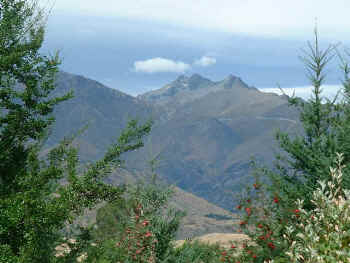 |
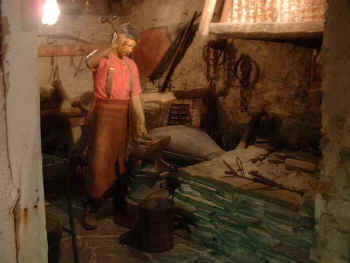 |
The Centennial Museum is one of the best small town museums in N.Z.
The local branch of the New Zealand Bank and adjoining stables became the basis of the
museum. The smithy is the original building on the site and is now part of the museum
also. |
| We took a walking tour of the historic village passing by small
cottages built by miners and still used today. Many were built of local stone because,
unlike other areas of N.Z., these mountains did not have any trees when settlers arrived.
All the trees in the Queenstown area were planted by settlers. The trees are exotics, non
New Zealand varieties such as maples, oaks, sycamores, and others. |
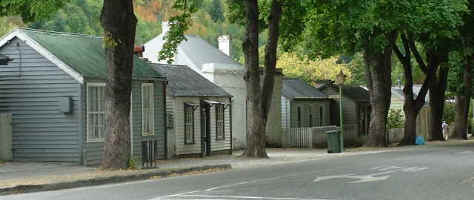 |
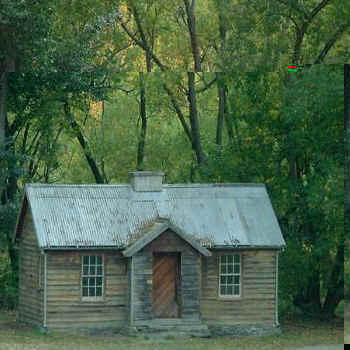 |
Some important historic buildings are being restored to their
original appearance such as the constabulary hut close to the Chinese community. The
Constabulary building has been recontructed but needs a little repair work. It was closed
while we were there.
|
| Chinese miners were invited to mine gold in the area after the European miners
left for other gold fields. The town needed to survive somehow and the Otago government
enticed Chinese immigrants to come and mine the gold. There are a few
buildings left at the settlement site and some that have been restored to look like the
originals. Very interesting. Pictured on the right is an outhouse in the foreground and
one of the two Chinese stores in the background. |
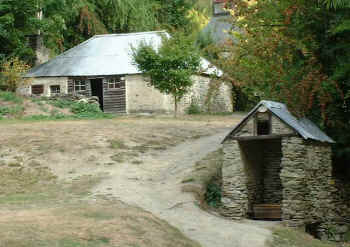 |
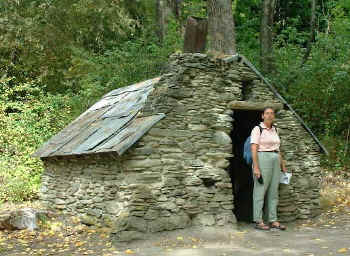 |
Paula is standing in front of one of the restored cottages. These
are tiny dwellings measuring about 12x12 (feet) with 6 foot headroom at the peak of the
roof. Built of local stone, a mica schist, including a fireplace and chimney. There was
very little wood, and the little there was had to be used for heating in the cold winters. |
| Arrowtown is a very interesting and historic place and well worth visiting.
There is the normal touristy section with souvenir shops, but otherwise the museum,
Chinese community and the beautiful homes made of schist stone are worth seeing. |
|
|
 S/V
TETHYS
S/V
TETHYS S/V
TETHYS
S/V
TETHYS